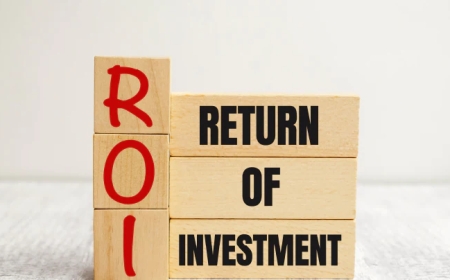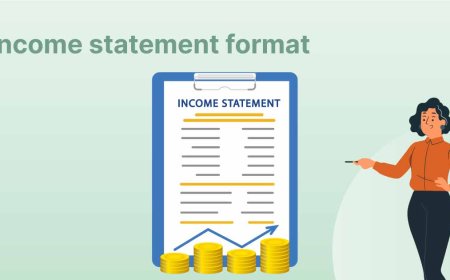Compounding

COMPOUNDING
Compounding is a financial concept that allows an investment's earnings to generate additional earnings over time. It is often referred to as "earning interest on interest" or "reinvestment of earnings." The process involves reinvesting the profits, dividends, or interest earned on an initial investment, leading to exponential growth in the value of the investment over time.
A step-by-step explanation of how compounding works:
Initial Investment:
The process of compounding starts with an initial investment. This can be in the form of money invested in a savings account, fixed deposit, mutual fund, stocks, or any other investment vehicle.
Earning Returns:
Once the investment is made, it starts earning returns. These returns can come in various forms, such as interest on a savings account or fixed deposit, dividends from stocks, or capital gains from mutual funds and other investments.
Reinvestment:
Instead of withdrawing the earnings from the investment, the key to compounding is reinvesting those earnings back into the same investment. By reinvesting, the earnings become a part of the original investment, and they begin to generate their own returns.
Generating Additional Earnings:
As the reinvested earnings start generating additional returns, the total investment grows larger. In the subsequent compounding periods, the investment's returns are calculated not just on the original principal but on the increased principal, which includes the reinvested earnings.
Continuous Cycle:
The process of reinvestment and generating additional earnings continues in a cyclical manner, creating a compounding effect. As the investment grows over time, the amount of returns earned in each period becomes larger, leading to accelerated growth.
The key factors that influence the impact of compounding are the rate of return on the investment and the time horizon. The higher the rate of return and the longer the investment remains untouched, the more substantial the compounding effect becomes.
Compounding plays a crucial role in long-term wealth creation. The longer an investment is allowed to compound, the more it can grow exponentially. This is why financial advisors often emphasize starting to invest early and maintaining a long-term investment strategy. The power of compounding allows investors to build significant wealth over time, even with relatively small initial investments.
People say that compounding leads to wealth creation because of its exponential growth effect on investments over time. When you reinvest the earnings (interest, dividends, or capital gains) generated by an investment, those earnings start generating their own returns. As a result, the investment grows at an increasing rate over the years.
The key reasons why compounding is associated with wealth creation are:
Exponential Growth:
Compounding results in exponential growth, not linear growth. Initially, the earnings may seem modest, but as the investment accumulates and the reinvested earnings generate more returns, the growth rate accelerates significantly. Over time, the investment's value can multiply many times over.
Leveraging Time:
Time is a critical factor in the compounding process. The longer the investment remains untouched, the more pronounced the compounding effect becomes. Even relatively small amounts can grow significantly over long periods.
Reinvestment of Earnings:
Unlike simple interest, where the returns are fixed and don't contribute to further growth, compounding reinvests the earnings back into the investment, creating a compounding cycle. This process multiplies the initial investment's potential.
Consistency and Discipline:
Consistently reinvesting earnings and having the discipline to stay invested for the long term are crucial to harnessing the full power of compounding. It requires patience and a long-term investment strategy.
Financial Goals Achievement:
Compounding allows individuals to achieve long-term financial goals, such as retirement savings, education funds, or building wealth over generations. It provides a reliable pathway to create wealth gradually over time.
Inflation Hedge:
Compounding can act as a hedge against inflation. As the investment grows, it maintains its purchasing power and protects against the eroding effects of inflation on wealth.
Diversification and Risk Mitigation:
By reinvesting earnings across a diversified portfolio of assets, investors can spread risk and improve their chances of achieving favorable returns over time.
It's important to note that compounding is not limited to any specific type of investment but applies to various financial instruments, including savings accounts, fixed deposits, stocks, mutual funds, and more. Different investments may offer different compounding frequencies (e.g., annually, semi-annually, quarterly), but the underlying principle remains the same.
Example 1: Fixed Deposit (FD)
Initial Investment: ₹100,000
Interest Rate: 6%
Compounding Frequency: Annually
Year Balance at the End of the Year Interest Earned in the Year
1 ₹106,000 ₹6,000
2 ₹112,360 ₹6,360
3 ₹119,101.60 ₹6,741.60
4 ₹126,243.78 ₹7,143.18
5 ₹133,807.60 ₹7,576.82
Example 2: Equity Investment
Initial Investment: ₹50,000
Average Annual Return: 12%
Year Balance at the End of the Year Returns Earned in the Year
1 ₹56,000 ₹6,000
2 ₹62,720 ₹6,720
3 ₹70,174.40 ₹7,454.40
4 ₹78,431.69 ₹8,257.29
5 ₹87,572.11 ₹9,140.42
Example 3: Mutual Fund Investment
Initial Investment: ₹1,00,000
Average Annual Return: 10%
Year Balance at the End of the Year Returns Earned in the Year
1 ₹1,10,000 ₹10,000
2 ₹1,21,000 ₹11,000
3 ₹1,33,100 ₹12,100
4 ₹1,46,410 ₹13,310
5 ₹1,61,051 ₹14,641
Example 4: Real Estate Investment
Initial Investment: ₹10,00,000
Average Annual Appreciation: 8%
Year Value of Property at the End of the Year Appreciation in the Year
1 ₹10,80,000 ₹80,000
2 ₹11,66,400 ₹86,400
3 ₹12,60,192 ₹93,792
4 ₹13,61,302 ₹1,01,110
5 ₹14,69,585 ₹1,08,283
In each of these examples, you can observe how the initial investment grows over time due to the compounding effect. The reinvestment of earnings allows the investments to generate more substantial returns, leading to wealth creation.
Compounding is a powerful financial concept that plays a crucial role in wealth creation. It is a phenomenon where earnings on investments create additional earnings, leading to exponential growth over time. The process is a key driver of long-term financial success and is applicable to various investment options, such as fixed deposits, equity investments, mutual funds, and real estate.
It is essential to remember that while compounding can be a powerful tool for wealth creation, it is not a guarantee of success. All investments carry some level of risk, and it's essential to diversify your portfolio and seek professional financial advice to make well-informed decisions tailored to your financial objectives and risk tolerance.
What's Your Reaction?

























































